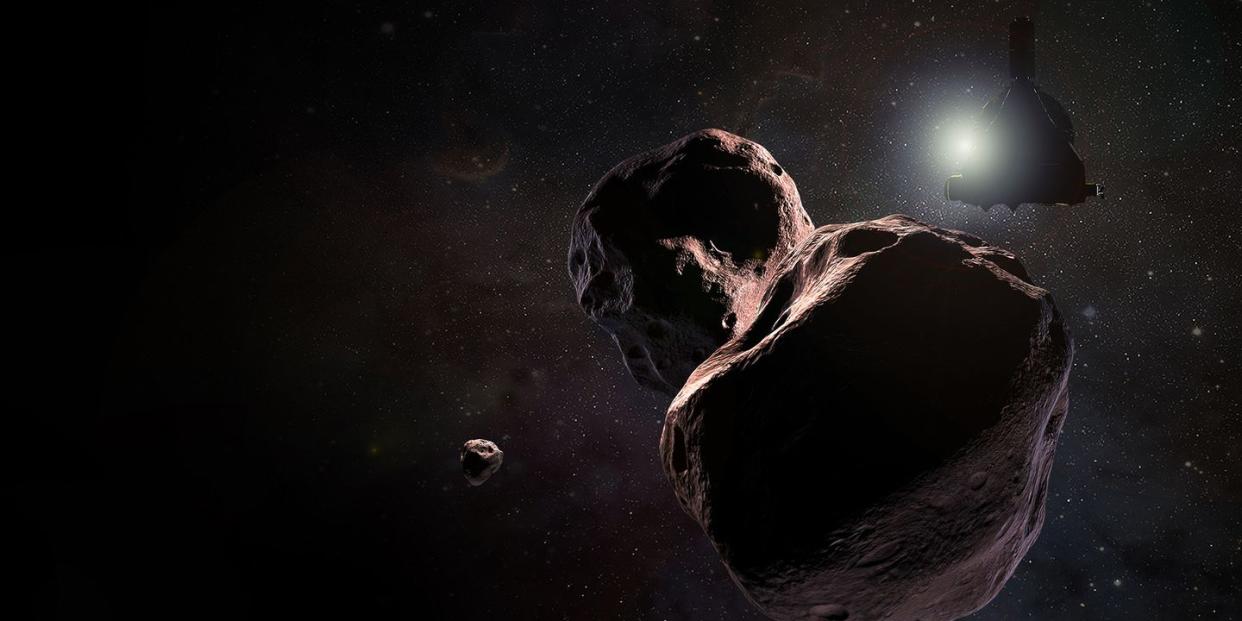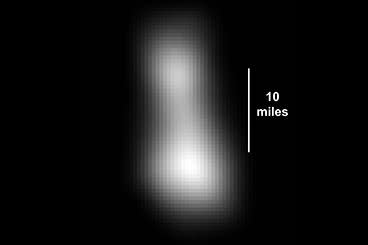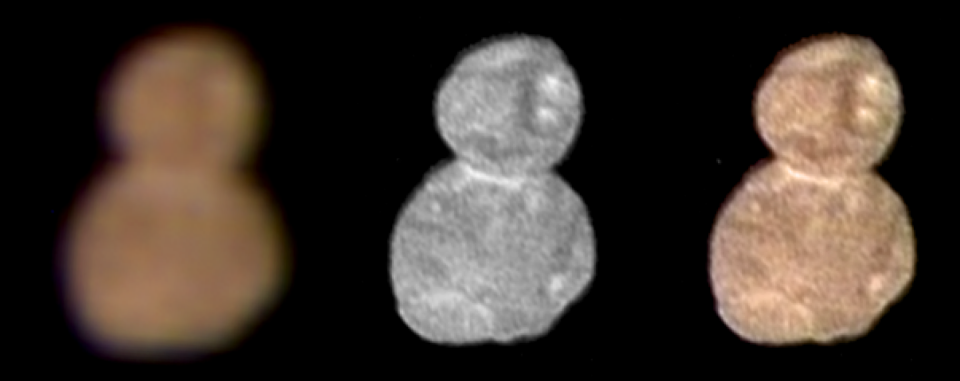Ultima Thule Is a Distant, Icy Little Object, Just Like Your Father

As the rest of us rang in 2019, NASA was making history. On January 1, the agency's New Horizons spacecraft flew past a rocky object in the Kuiper asteroid belt, a billion miles beyond Pluto, collecting data and sending it back to the Earth. It was the furthest world humankind has ever explored in space.
That small, icy, and distant rock New Horizons photographed is known as, not your father, but Ultima Thule (pronounced "TOO-lee"). The complete data set collected by New Horizons during the flyby will take 20 months to beam back to NASA scientists, but the initial trickle began with some very blurry photos received Tuesday. (The above illustration is an artistic impression.)

NASA originally described Ultima Thule's shape as "similar to a bowling pin" that is "spinning like a propeller," but also said it could potentially be two objects in tight orbit with one another. A second batch of photos released Wednesday was more clear, prompting mission scientists to narrow their description from "bowling pin" to "snowman," AP reports. The object is a dull red color, and looks friendly enough.

Better images will continue to come in over the following days and months. Unlike the Japanese rovers that performed a wild landing on a moving asteroid last fall, New Horizons is keeping its distance from Ultima Thule to thousands of miles, where it can capture details the size of a basketball court, according to mission scientists.
While you'd think something named "Ultima Thule" would be a challenger to Thanos for galactic superiority in Avengers 4: Endgame, or doing drag, the name fittingly means "beyond the borders of the known world." And we're getting to know those borders. With this new data, NASA hopes to learn more about the formation of dwarf planets like Pluto as well as the start of the universe; Ultima Thule might not have changed much since the Big Bang days, giving us vital clues as to how our solar system formed.
New Horizons, which left Earth 13 years ago and performed an exploratory flyby of Pluto in 2015, will continue probing the Kuiper Belt for more data until at least 2021, when current funding for the mission runs out. Right now, it is over 4 billion miles away from the sun. Despite its long journey, the spacecraft is still chugging along and could potentially break through the belt to join NASA's Voyager and Pioneer spacecraft outside our solar system-if the mission is renewed, Space reports.
At a press conference Tuesday, the New Horizons mission's principal investigator S. Alan Stern of the Southwest Research Institute said, "I don’t know about you, but I’m really liking this 2019 thing so far." So that's one person optimistic about the new year.
This story has been updated to reflect new developments from NASA.
('You Might Also Like',)

